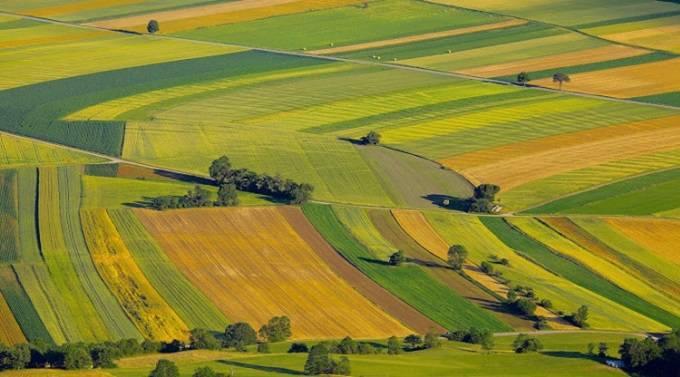If disaster is the problem, insurance is the solution for farmers

Stanford Chiwanga
ALMOST every farming season a good number of unfortunate farmers in Zimbabwe fall prey to the destructive elements of nature such as floods, droughts, heat, fire, insects and birds.
Despite the fact that these harms are now occurring almost every year, farmers keep leaving the fate of their crops and livestock to fate and chance. The need to insure their crops against disaster is far from their minds.

Farmers keep leaving the fate of their crops and livestock to fate and chance.
Agricultural insurance is one of the most ignored tools for risk management yet it can play a pivotal role in managing the risks related to farming. But farmers think that it is an unnecessary expense.
Agricultural insurance is a slow growing business in Zimbabwe despite the increasing commercialisation of agriculture. The changing and unpredictable weather patterns and economic environment have also failed to trigger a renewed interest in crop, livestock and other agricultural insurance programmes by many farmers.
In fact, studies show that the levels of insurance in the farming sector in Zimbabwe are very low, with agriculture contributing barely five percent to gross premium income of insurance products.

Studies show that the levels of insurance in the farming sector in Zimbabwe are very low
Farmers can insure their crops against destruction by fire, floods, wind, and theft and against disease outbreaks that might affect livestock and crops.
The Minister of Lands, Agriculture, Water, Climate and Rural Settlement, Perrance Shiri advises farmers, especially those operating on commercial basis to take insurance as an integral part of their operations to avoid losses.
“Risk management is very important in farming because a fire outbreak, hailstorm or floods can damage crops. An outbreak of diseases can kill livestock. The unfortunate thing is that such disasters strike when you least expect them. Every farmer should take insurance as an integral part of their operations to compensate losses after disaster strikes,” said Minister Shiri.

Every farmer should take insurance as an integral part of their operations to compensate losses after disaster strikes – Minister Shiri.
However, most farmers are inexperienced and lack knowledge of farming and how agricultural insurance works.
Agronomist Davison Masendeke said there is a lack of knowledge of the importance of insurance. It is very important for farmers to operate their businesses without fear of risks especially when dealing in cash crops or are into commercial livestock production.
“Lack of knowledge of agricultural insurance is affecting and costing many farmers. Farmers that are into growing crops like cotton, tobacco or are into commercial livestock production, should insure their operations against risks. Farmers need to be compensated in case of drought or other such disasters,” he said.

Farmers that are into growing crops like cotton, tobacco or are into commercial livestock production, should insure their operations against risks.
An insurance expert Elliot Mlotshwa said it is risky to operate a business without insurance. The cost/benefit ratio to the farmer and to the potential insurance provider is favourably balanced. Most farmers only realise the benefits of insurance when disaster strikes.
“For businessmen who are into farming or any other commercial operations, they should not calculate the cost/benefit at face value or overgeneralise risks, just because they have over ten years in farming without experiencing a risk or disaster,” he said.
Mlotshwa said with instability in today’s economy farmers need insurance cover.
“A farmer can buy a cow at, for example, $300 each today but when disaster strikes the following month or year, the price of that beast may have risen to $800. How would that farmer be able to replace the lost beast?” he asked.

It is difficult to replace cattle in an unstable economy without insurance
He said premiums and terms for agriculture insurance were very affordable. He said in the case of cotton and tobacco growers, there were policies that could cover in such a way that the farmer will enjoy the benefits and later pay for it after selling their produce. A farmer’s property is first evaluated and provides the approximate value of the property. Property is covered once the first premium is paid.
Mlotshwa urged farmers to acquire some risk management skills and control measures first to avoid unnecessary losses.
“Risk management and control skills are of crucial importance in the investment and financing decisions of farmers. Basic risk management measures in agriculture include choice of plant varieties and animal breeds, crop and animal husbandry practices, diversification of farm enterprises as well as taking precautionary prevention measures against adverse weather,” he said.
And in cases where risk management fails and disaster strikes then insurance will be the solution.








Comments